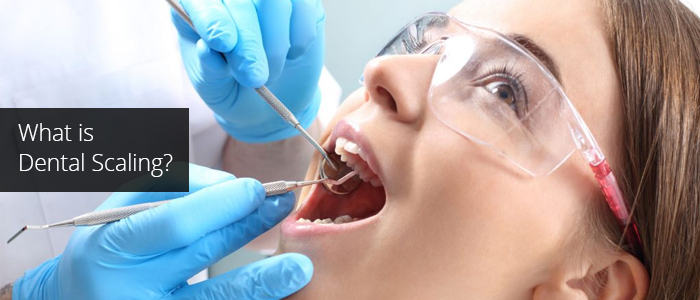What is Dental Scaling?
Posted on by adminGum disease, or periodontitis as it is also known, is a common occurrence that many people will encounter in their lives.
Gum disease can often be present, without the patient being aware, for a number of weeks or months, as the first signs of the disease can be easy to miss. Some of the more common early signs of gum disease are bleeding or tender gums, sensitive teeth, swollen gums, and continual bad breath.

If you are one of the many who are diagnosed with gum disease at some point in your life, it is likely that dental scaling is among the treatment methods that will be used. So, what is dental scaling?
Why Dental Scaling?
If you are experiencing gum disease that is not severe, dental scaling is likely to be chosen as the recommended treatment.
For those who have more severe forms of gum disease, you may require surgery. That being said, you will likely have dental scaling and root planing prior to the surgery. All of this will be decided by your dentist or periodontist, once a full oral inspection has been carried out. Now, let’s explore a little further what is dental scaling.
The Two Types of Dental Scaling
Dental scaling comes in two distinct types, scaling that is done with ultrasonic instruments, and that which is performed with hand-held tools. For hand-held scaling, this is performed using a scaler, which manually helps to remove any of the plaque that is stuck on the teeth.
The more advanced form of dental scaling is that which is done using ultrasonic instruments, in order to remove plaque. This is performed with the use of a metal tip that vibrates in order to chip off the plaque and tartar. While this process is occurring, water is used to wash away any of the debris, along with keeping the metal tip cool.
Rounding up
Whether you are experiencing any problems with your teeth or gums and other oral areas, ensuring that you visit a dentist or periodontist at the first sign of a problem is crucial.
In addition to this, regular visits to have your teeth checked and cleaned should be undertaken at least twice a year, in order to prevent gum disease and other problems.

